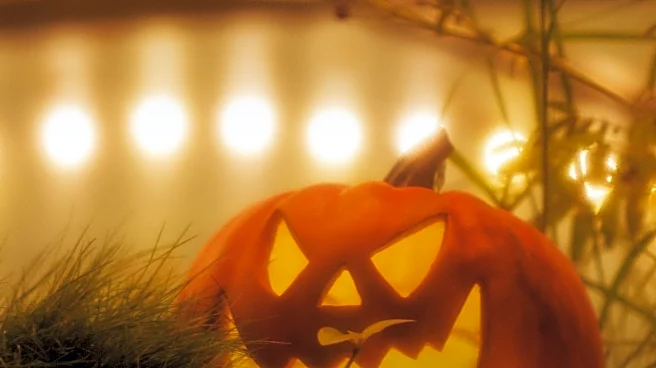What's Happening?
As Halloween approaches, retailers such as HomeGoods and TJ Maxx are offering discounts on Halloween decorations to make room for winter holiday goods. Popular items include themed pillows and animatronics, with stores like Michaels and Anthropologie providing unique seasonal lines. Michaels' 'Alice in Wonderland'-themed decor has been particularly popular, reflecting a trend towards year-round haunted lifestyle communities. Beverage company Angry Orchard has released a short film to promote its seasonal cider offerings, while Spirit Halloween has introduced a new animatronic based on its mascot, Jack the Reaper.
Why It's Important?
The discounting of Halloween decorations highlights the commercial cycle of seasonal goods, impacting consumer spending patterns. Retailers benefit from clearing inventory, while consumers enjoy lower prices on festive items. The trend towards year-round haunted decor suggests a shift in consumer preferences, potentially influencing future product offerings. The release of themed beverages and films by companies like Angry Orchard indicates a growing market for seasonal branding, which can drive sales and brand engagement.
What's Next?
As Halloween passes, retailers will continue to transition to winter holiday merchandise, potentially offering further discounts on remaining Halloween stock. The trend towards year-round haunted decor may lead to more permanent offerings in stores. Companies may continue to leverage seasonal themes in marketing campaigns, potentially expanding into other holidays. Consumer response to these trends will likely influence future retail strategies and product development.
Beyond the Headlines
The growing popularity of year-round haunted decor reflects broader cultural shifts towards embracing alternative lifestyles and aesthetics. This trend may influence interior design and home decor industries, encouraging more diverse product lines. The integration of technology in decorations, such as animatronics, suggests a future where interactive and customizable decor becomes more common, potentially impacting manufacturing and retail sectors.








